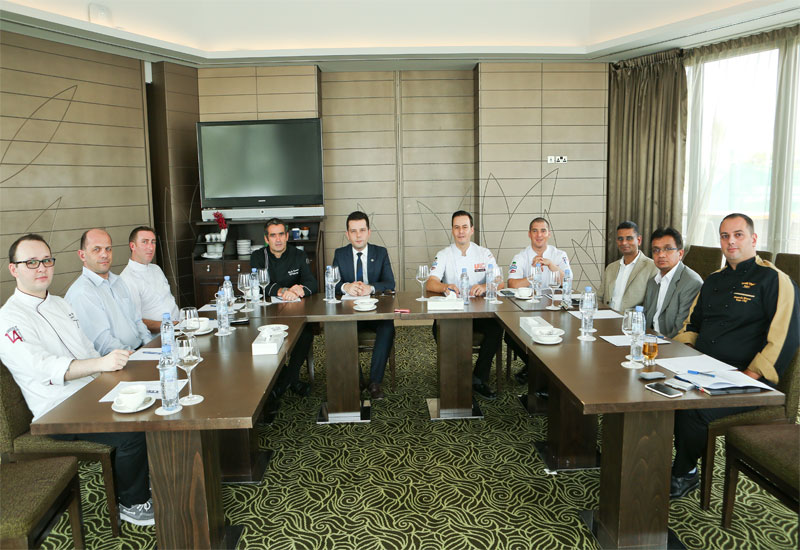Saeed: When the situation is really bad, the hygiene manager reports to us unofficially. Similarly you can officially log in a complaint.
Pettit: In the essence of searching for a solution, I have to say I believe it’s two parts. One is from the chefs when you receive your products. You reject the products or sometimes you have to take those things. But if you go a step further and say alright we received mayonnaise today, I know it’s from Food Solutions, I’m rejecting it, but let me drop a mail to my sales representative at Food Solutions and make them aware of that.
We, as food producers, need to take a lot more responsibility, instead of creating the product and sending it to the distributor and expecting everything to be fine and dandy. There’s a number of things we can do to improve.
One, we need to realise there’s a problem and admit we need to provide solutions. One of those should include investing in training for these distributors. If we spent some more money on investing in their training, how much product and how much waste we would reduce?

| Advertisement |
Distributors need to understand the consequences of their waste or mishandling of product especially when it comes to temperature and it’s up to businesses like us to take action where it really matters.
And that’s in terms of the rebates and the relationships and the deals and the contracts that we have. The health and safety aspect is not being put as part of that contract. It’s about how much growth, how much profitability, how many products are you selling to each customer.
There’s got to be something in that document to support the safety of the food as well and the consequences if you don’t adhere to those stringent contract points. That is a perfect world, but it has got to start somewhere. We’re scared to say that Dubai is a third-world place but underneath it’s still brewing like that and we’ve got to actively take a step forward.
Williams: It has improved though. I’ve only been here six years but seen definite improvement in food safety. The suppliers are starting to take it seriously, the products we’re getting now are of much higher standard. I think it comes from reputation as well. Chefs talk to each other and we’ll tell each other about good and bad suppliers. The good suppliers are getting better and the bad suppliers are slowly getting cut out.
Raja: You’ve got a very smart person trying to sell the food but the person supplying it is very different. Unless the training goes deeper to the person delivering the food... His job is just to drive and deliver, and he is carrying diverse inventory. There are many practical challenges, and ground level realities are very different.
You might have a perishable and dry food item moving together, but for him it’s all the same thing.
Karakoulias: They are on pressure, and have to deliver to different hotels. When you go for inspection inside the truck, they put pressure on you and say they need to rush so we cannot take the time to check temperature and conditions.
Saeed: Most of the training is not job-oriented. The food safety manager and training companies use basic food hygiene training. Those contents have everything related to cooking, cross-contamination; I don’t think the receiver has to know all these things. It is much better if we redesign our training according to the job responsibility.
Westhuizen: I like the suggestion — rather than teaching the entire HACCP process which might go over their heads, deliver a short training programme only to the drivers, or those stacking products.
Raja: Elsewhere in the world, you need a multi-level certification, even your driver handling food to have a very specific focus or certification… that’s very common. Receiving is a very serious job in itself, it’s the entry-point of food coming inside.
Article continues on next page ...









 Search our database of more than 2,700 industry companies
Search our database of more than 2,700 industry companies









